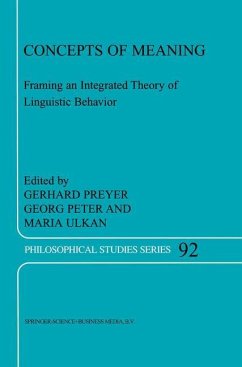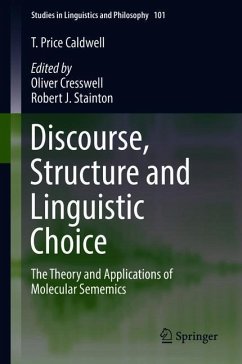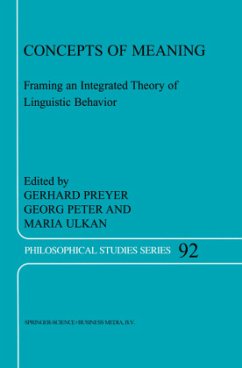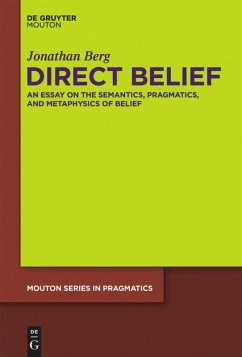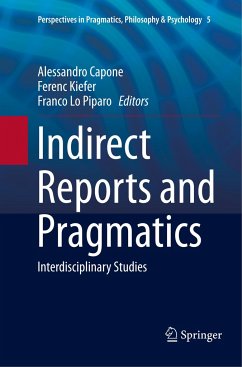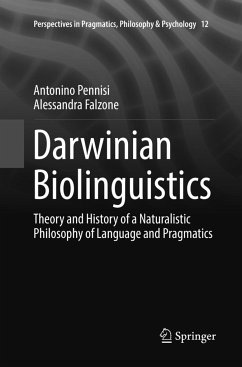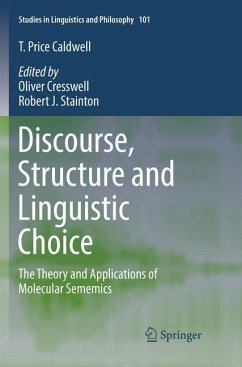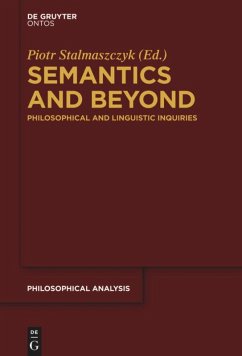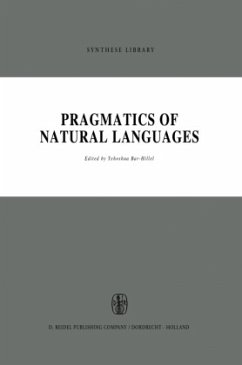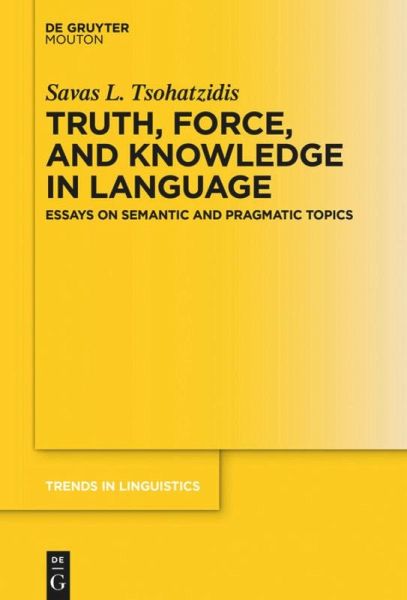
Truth, Force, and Knowledge in Language
Essays on Semantic and Pragmatic Topics
Versandkostenfrei!
Versandfertig in 6-10 Tagen
102,99 €
inkl. MwSt.
Weitere Ausgaben:

PAYBACK Punkte
51 °P sammeln!
This book collects twenty-five of the author's essays, each of which addresses a descriptive or a foundational issue that arises at the interface between linguistic semantics and pragmatics, on the one hand, and the philosophy of language, on the other.Arranged into three interconnected parts (I. Matters of Meaning and Truth; II. Matters of Meaning and Force; III. Knowledge Matters), the essays suggest that some key topics in the above-mentioned fields have often been approached in ways that considerably underestimate their empirical or conceptual complexity, and attempt to delineate perspecti...
This book collects twenty-five of the author's essays, each of which addresses a descriptive or a foundational issue that arises at the interface between linguistic semantics and pragmatics, on the one hand, and the philosophy of language, on the other.
Arranged into three interconnected parts (I. Matters of Meaning and Truth; II. Matters of Meaning and Force; III. Knowledge Matters), the essays suggest that some key topics in the above-mentioned fields have often been approached in ways that considerably underestimate their empirical or conceptual complexity, and attempt to delineate perspectives from which, and conditions under which, an improved understanding of those topics could be sought.
The book will be of interest to linguists working in semantics and pragmatics, and to philosophers working in the philosophy of language and in epistemology.
Arranged into three interconnected parts (I. Matters of Meaning and Truth; II. Matters of Meaning and Force; III. Knowledge Matters), the essays suggest that some key topics in the above-mentioned fields have often been approached in ways that considerably underestimate their empirical or conceptual complexity, and attempt to delineate perspectives from which, and conditions under which, an improved understanding of those topics could be sought.
The book will be of interest to linguists working in semantics and pragmatics, and to philosophers working in the philosophy of language and in epistemology.




